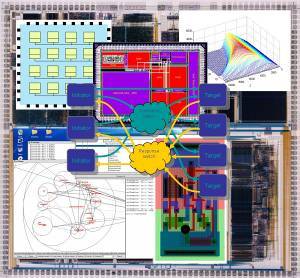
A Low-Power Processor Architecture Optimized for Wireless Devices
A.Efthymiou, J.D.Garside, I.Papaefstathiou
Abstract
The advantages of power-aware processors are well known. This paper presents an innovative processor architecture optimized for wireless environments. The presented architecture incorporates a certain power-aware microarchitectural technique, called pipeline depth adaptation and it is tailored to self-timed processors. With this technique a processor is able to alter its pipeline depth, while in operation, trading speed and energy use. The pipeline depth is changed by making selected pipeline registers transparent. A shallow pipeline has lower energy consumption for two reasons: the capacitance driven by the load signal of the ‘collapsed’ pipeline registers is not switched and the reduction in branch latency and data-dependent stalls reduce the cycles per instruction CPI) of the processor. An analysis of the advantages of using pipeline depth adaptation in an asynchronous processor is given, supported by simulation results based on a real asynchronous processor and on applications that are frequently executed on a wireless environment. Finally a method of dynamically adapting the pipeline depth is described and evaluated which only reduces the pipeline depth when a branch instruction is expected. The presented architecture has a relatively lower power consumption than a conventional similar architecture, therefore it can be useful in wireless environments.
PDF (241K) IEEE Copyright

